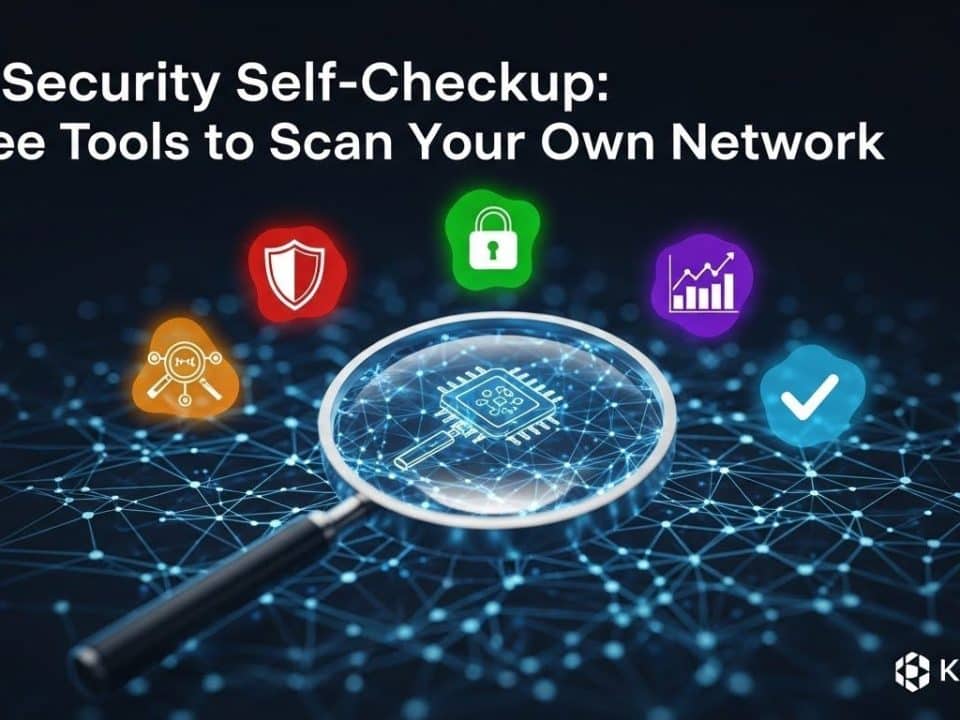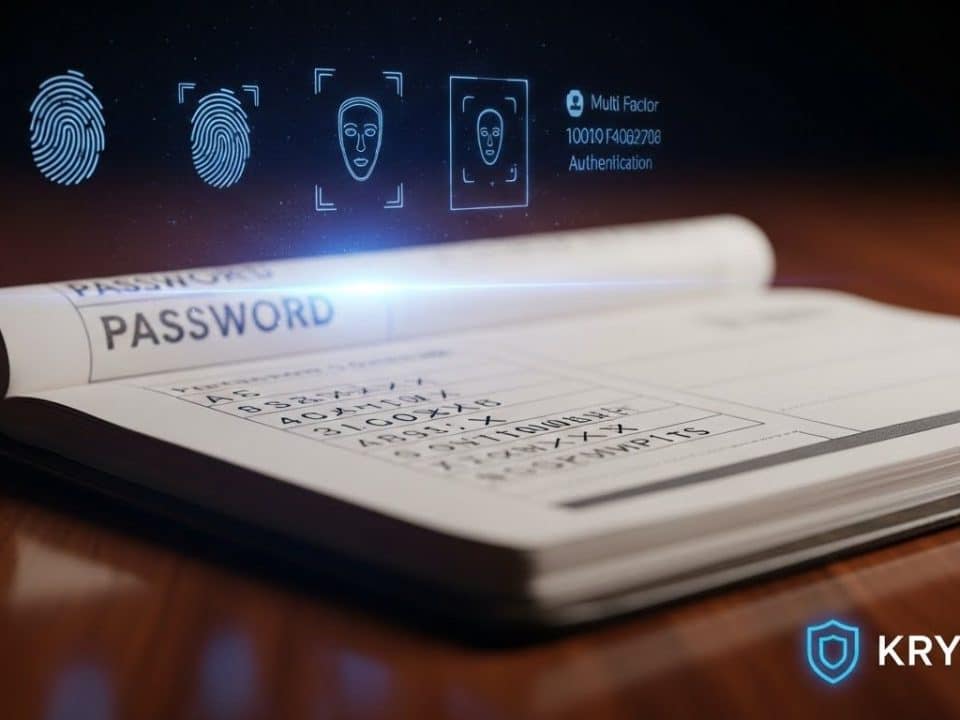
Remote Work: Navigating the Cybersecurity Risks of a Distributed Workforce
January 10, 2025
Building a Fortress of Security: A Practical Guide to Implementing Cybersecurity Strategies and Solutions
January 12, 2025The recent news that a company specializing in tracking and selling Americans’ location data has apparently been hacked serves as a chilling reminder of the vulnerability of our personal information in the digital age. The article, “A company that tracks and sells Americans’ location data has seemingly been hacked,” highlights the serious implications of such breaches and underscores the urgent need for robust data security and privacy practices.
As your trusted cybersecurity partner, Krypto IT is committed to analyzing emerging threats and providing actionable guidance. This blog post will delve into the key takeaways from this incident, explore the broader context of location data privacy, and outline best practices for protecting sensitive information.
The Breach: What We Know So Far
While details of the breach are still emerging, the article suggests that a company involved in collecting, analyzing, and selling location data derived from mobile devices has fallen victim to a cyberattack. This type of data is highly sensitive, as it can reveal intimate details about individuals’ movements, routines, and associations.
Implications of a Location Data Breach
The compromise of location data can have far-reaching consequences:
- Privacy Violations: Location data can expose where people live, work, and spend their time. This information can be used for stalking, harassment, or other malicious purposes.
- Security Risks: Knowledge of individuals’ movements can be exploited for targeted attacks, such as burglaries or physical surveillance.
- Discrimination and Bias: Location data could potentially be used to discriminate against individuals based on their religion, ethnicity, or other personal characteristics, if linked to other datasets.
- Erosion of Trust: Breaches like this erode public trust in companies that handle sensitive data and raise concerns about the overall security of the data ecosystem.
- Legal and Regulatory Ramifications: Companies that fail to adequately protect location data may face legal action and regulatory fines under privacy laws like the GDPR and CCPA.
The Broader Context: Location Data Privacy Concerns
This incident is not an isolated case. It highlights a broader issue surrounding the collection, use, and protection of location data. Many companies, including mobile app developers, advertising networks, and data brokers, collect and analyze location data, often with limited transparency and user control.
Key Concerns:
- Lack of Transparency: Users are often unaware of the extent to which their location data is being collected, shared, and sold.
- Insufficient Consent: Consent mechanisms are often inadequate, with users unknowingly agreeing to data collection through lengthy and complex privacy policies.
- Data Aggregation and De-anonymization: Even when location data is anonymized, it can often be re-identified when combined with other datasets.
- Security Vulnerabilities: Many companies that handle location data lack adequate security measures to protect it from breaches.
Best Practices for Protecting Sensitive Data
This breach underscores the need for organizations to prioritize data security and privacy. Here are some essential best practices:
1. Data Minimization and Purpose Limitation:
- Collect Only Necessary Data: Only collect the minimum amount of data required for a specific purpose.
- Define Clear Purposes: Clearly define the purposes for which data is collected and used.
- Avoid Data Creep: Resist the temptation to collect and store data that is not essential for the defined purposes.
2. Strong Security Measures:
- Encryption: Encrypt sensitive data both in transit and at rest.
- Access Control: Implement strict access controls based on the principle of least privilege.
- Intrusion Detection and Prevention: Deploy systems to detect and block unauthorized access attempts.
- Regular Security Audits: Conduct periodic security audits and vulnerability assessments to identify and address weaknesses.
- Data Breach Response Plan: Develop a plan for responding to data breaches, including notification procedures.
3. Transparency and User Control:
- Clear Privacy Policies: Provide clear and concise privacy policies that explain how data is collected, used, and protected.
- Meaningful Consent: Obtain informed consent from users before collecting and using their data.
- Data Access and Deletion: Allow users to access, correct, and delete their data.
4. Secure Development Practices:
- Privacy by Design: Integrate privacy considerations into all stages of the software development lifecycle.
- Secure Coding Practices: Train developers on secure coding practices to prevent vulnerabilities.
- Regular Security Testing: Conduct thorough security testing, including penetration testing, to identify and address vulnerabilities.
5. Employee Training:
- Security Awareness Training: Educate employees about data security and privacy best practices, including the importance of protecting sensitive data.
- Phishing Awareness: Train employees to recognize and report phishing attempts that could lead to data breaches.
Password Policy Best Practices
A robust password policy is an integral part of any data security strategy. A compromised password can be the gateway to a data breach. As such, organizations should include these in their security policies:
- Password Complexity:
- Enforce minimum length requirements (at least 12 characters, preferably longer).
- Require a mix of uppercase and lowercase letters, numbers, and symbols.
- Disallow common words or easily guessable information.
- Password Expiration:
- While the need for frequent changes is debated, periodically updating passwords or changing them after a suspected compromise is a good practice.
- Prevent the reuse of old passwords.
- Account Lockout:
- Implement account lockout after a certain number of failed login attempts.
- Multi-Factor Authentication (MFA):
- Mandate MFA for all users, especially those with access to sensitive data.
- Password Storage:
- Never store passwords in plain text. Use strong, salted hashing algorithms.
- Employee Training:
- Educate employees on creating strong passwords and the importance of not reusing passwords across different services.
Krypto IT: Your Partner in Data Security and Privacy
The apparent breach of a company handling sensitive location data is a stark reminder of the importance of robust data security and privacy practices. Organizations must take proactive steps to protect sensitive information from unauthorized access and misuse.
Krypto IT can help your organization implement the best practices outlined in this blog post. Our services include: data security assessments, vulnerability management, penetration testing, security awareness training, and incident response planning. We can also assist you in developing and implementing comprehensive data protection policies that comply with relevant regulations.
Contact us today for a free consultation and let us help you build a more secure and privacy-focused organization.
Don’t let your organization become the next data breach headline. Be proactive. Be secure. Partner with Krypto IT.
#Cybersecurity #DataBreach #LocationData #Privacy #DataSecurity #InfoSec #CyberDefense #DataProtection #RiskManagement #SecurityBestPractices #KryptoIT #CyberThreats #MobileSecurity #DataPrivacy #PasswordSecurity




